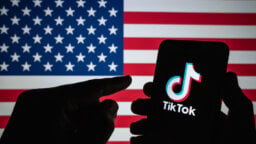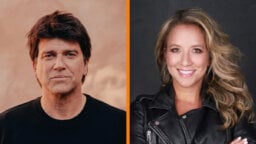An appeals court in Washington, DC, has set an accelerated schedule to hear arguments over the US’s new law that forces China’s ByteDance to sell TikTok or face a ban in the US.
In an order issued on Tuesday (May 28), the US Court of Appeals for the District of Columbia said it will hear oral arguments in the case in September.
Under the law signed by President Joe Biden in late April, ByteDance has until January 19, 2025 to sell TikTok, or at least convince the president that the process of selling TikTok is credibly underway, or effectively face a ban on the app. App stores like the Apple Store and Google Play would be forbidden from offering TikTok, and web hosting services would be forbidden from working with the app.
TikTok said the expedited pace of hearings means it may not have to file for an injunction to prevent the law from being enforced, according to a report from Reuters.
Shortly after the Protecting Americans from Foreign Adversary Controlled Applications Act came into force, TikTok and ByteDance filed a lawsuit against the US Department of Justice, calling the law unconstitutional.
“Congress has taken the unprecedented step of expressly singling out and banning TikTok: a vibrant online forum for protected speech and expression used by 170 million Americans to create, share, and view videos over the Internet,” stated the complaint, which can be read in full here.
Later in May, a group of prominent TikTok users, who combined have a follower count of more than 11 million, also filed a lawsuit against the US.
“In supporting the Act, lawmakers claimed that TikTok ‘manipulate[s]’ American minds and disseminates “propaganda” that would ‘use our country’s free marketplace to undermine our love for liberty.’ But it is the Act that undermines the nation’s founding principles and free marketplace of ideas,” stated the petition, which can be read in full here.
“The First Amendment to our Constitution precludes Congress from censoring speech because of its content, viewpoints, editorial practices, or identity of speakers or publishers.”
The two lawsuits have been combined into one case by the DC appeals court, which has sole jurisdiction over the divest-or-ban law, as stated in the law itself.
The court has ordered TikTok and ByteDance, as well as the TikTok users petitioning the court, to file written briefs no later than June 20.
The Department of Justice – the respondent in the case, under Attorney General Merrick Garland – has until July 26 to file its written brief. TikTok and the creators can then file a written reply to that brief by August 15.
TikTok has been a target for US lawmakers for several years, amid concerns that ByteDance may be sharing US users’ personal information with the Chinese governments – an assertion TikTok’s CEO, Shou Zi Chew, has repeatedly denied.
Concerns have also been raised that TikTok’s algorithm may be manipulating US public opinion through the types of content it serves to users.
TikTok has countered that banning the app would deprive 170 million users in the US from participating in the platform, in violation of their First Amendment rights. It has said that around 7 million businesses in the US rely on the short video platform, and that it contributes $24 billion in economic activity to the US economy annually.
It has also argued that it has done more than other social media platforms to secure the data of its users and prevent manipulation of its algorithm.
“Through our US data security efforts, we have built safeguards that no other peer company has made,” Chew said in a video released last month. “We have invested billions of dollars to secure your data and keep our platform free from outside manipulation.”
TikTok has at times found itself in conflict with the music industry, most notably earlier this year when Universal Music Group’s recorded and publishing catalogs disappeared for several months from the platform after the two companies failed to come to a licensing agreement.
UMG argued that TikTok was trying to shortchange its artists; TikTok countered that UMG’s “greed” was behind the conflict.
All the same, TikTok’s utility to artists as a music discovery and promotion platform was evident last month, when UMG-signed Taylor Swift’s music began to reappear on the platform even before TikTok and UMG came to a licensing agreement.
Earlier this month, TikTok unveiled a new ‘Fan Spotlight’ feature for musicians, which allows artists to engage more deeply with their TikTok fan base by pinning fan videos to their music tab. The feature was rolled out with the aid of Billie Eilish, another UMG artist.Music Business Worldwide




